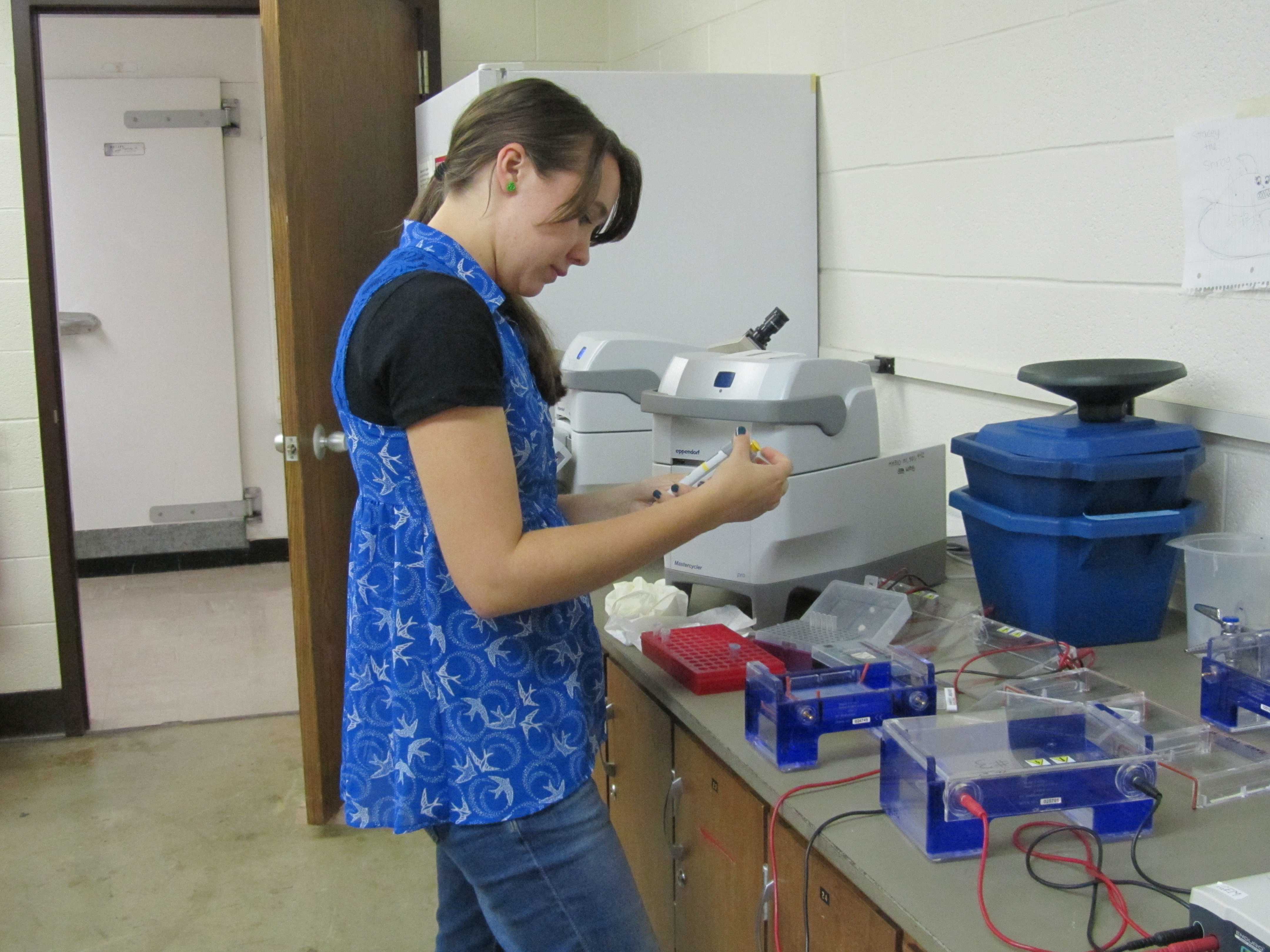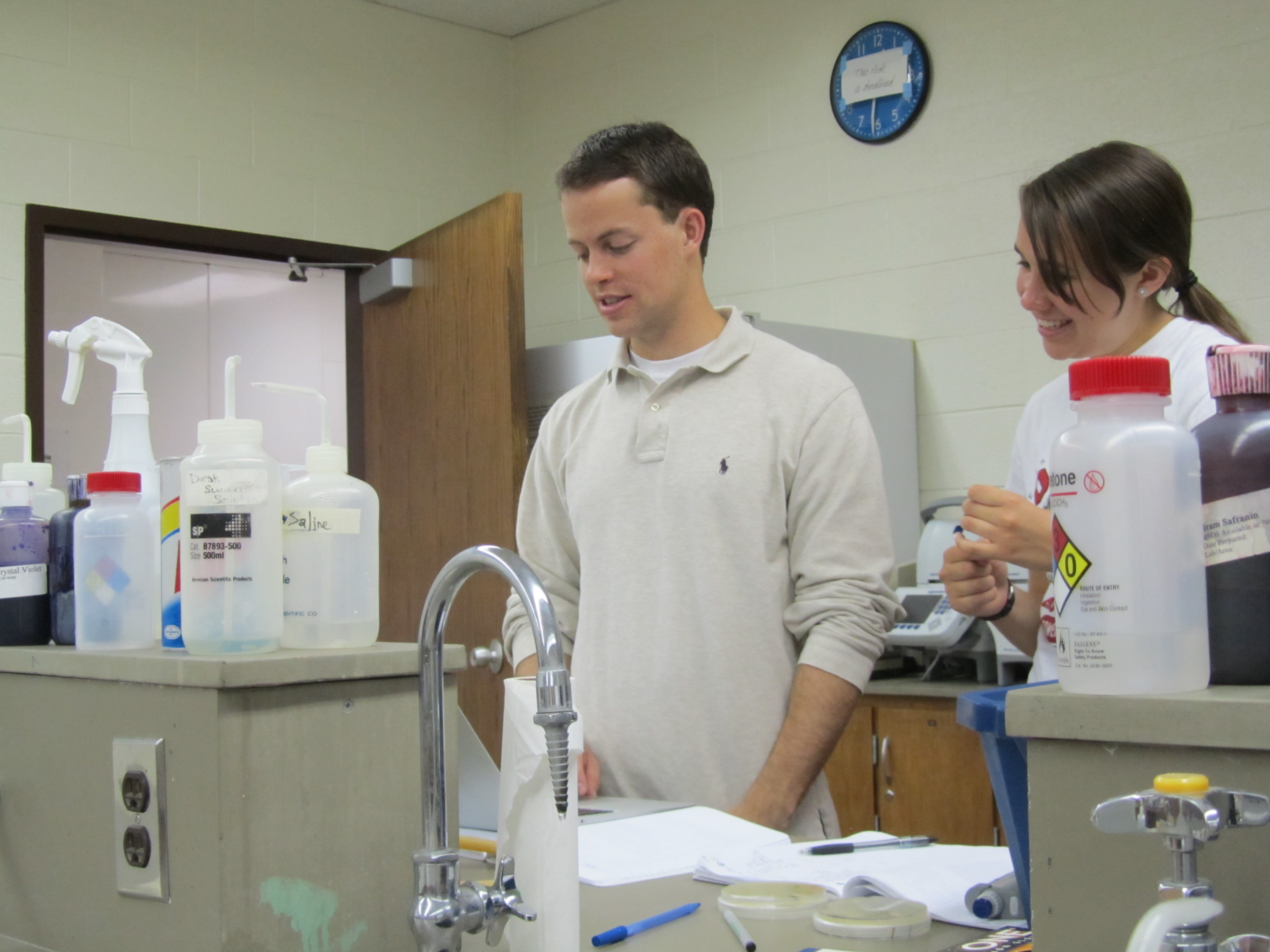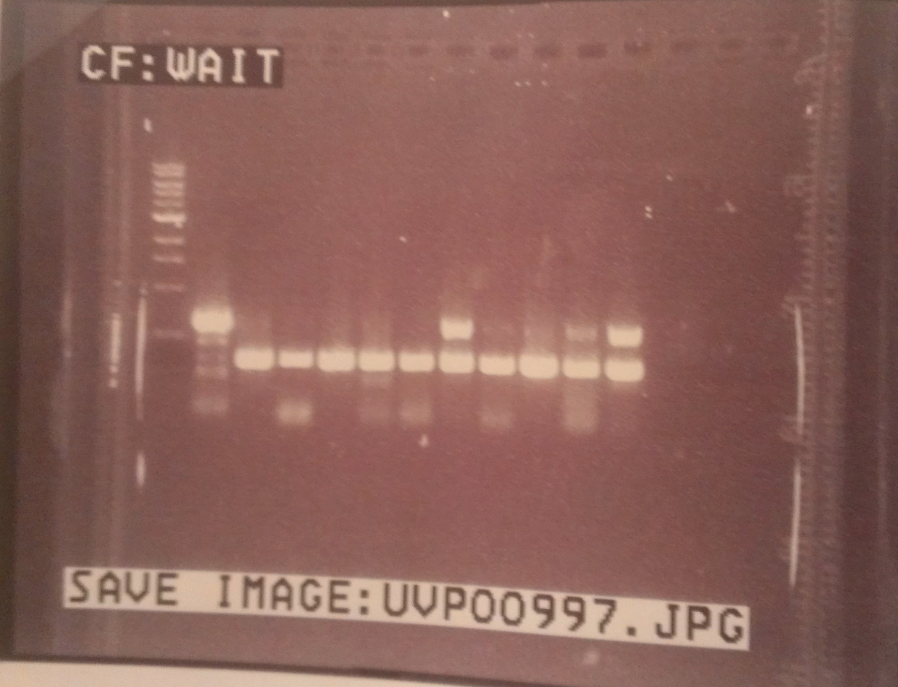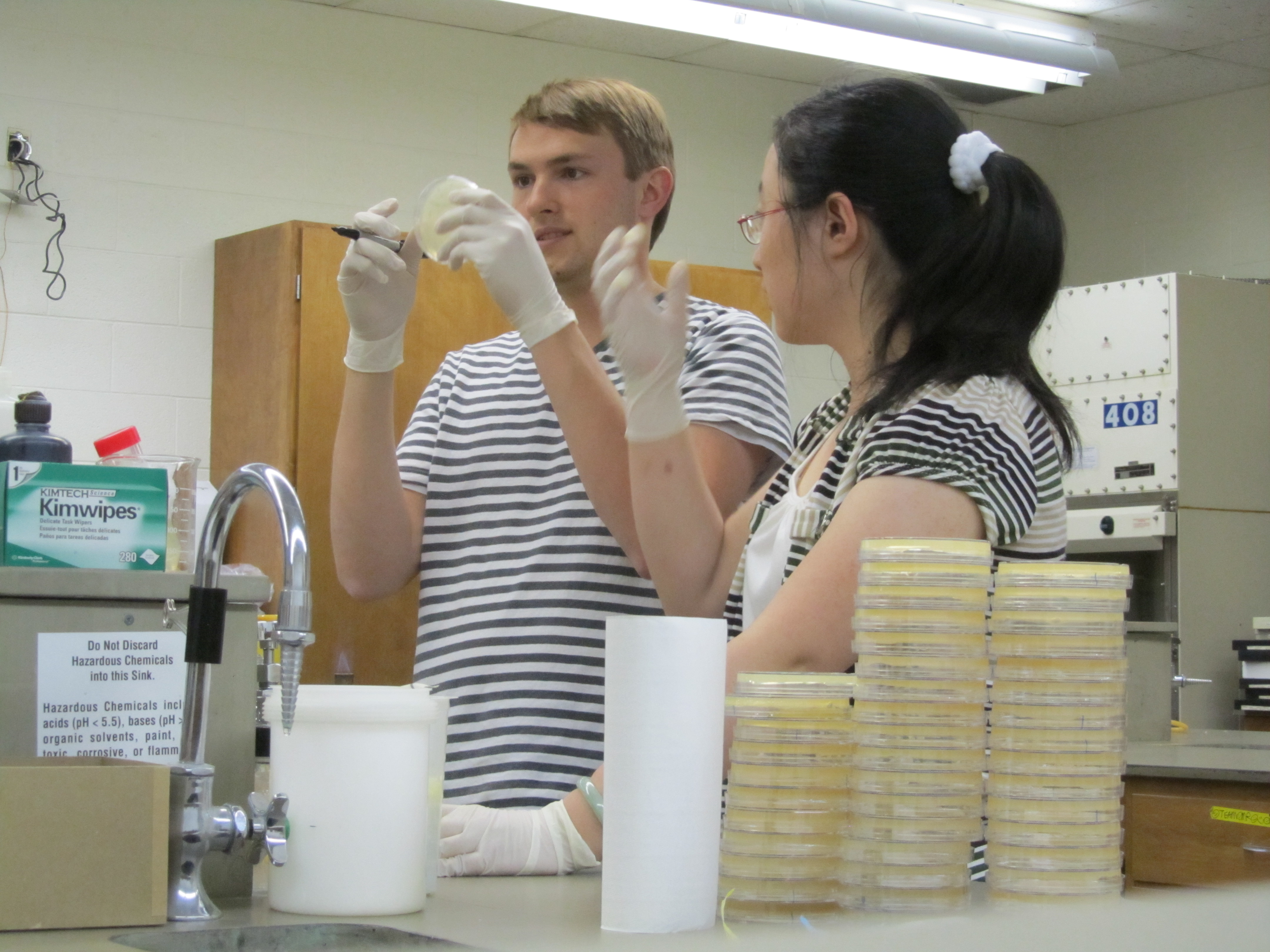Team:BYU Provo/Notebook/Cholera - Detection/Springexp
From 2013.igem.org
| (10 intermediate revisions not shown) | |||
| Line 12: | Line 12: | ||
|- valign="top" | |- valign="top" | ||
| - | | style="width: | + | | style="width: 22%; background-color: transparent;"| |
<font color="#333399" size="3" font face="Calibri"> | <font color="#333399" size="3" font face="Calibri"> | ||
| Line 30: | Line 30: | ||
</font> | </font> | ||
| - | | style="width: | + | | style="width: 55%; background-color: transparent;"| |
| - | <font size="5" font face="Calibri"> '''May 1 - May | + | <font size="5" font face="Calibri"> '''May 1 - May 14''' </font> |
<br> | <br> | ||
| - | <font size="3" font face="Calibri"> | + | <font size="3" font face="Calibri"> We attempted to amplify Cro through PCR and cut it out of a gel. Cro will be used to induce the lytic cycle of lambda. We believe that when there is an abundance of Cro, there will be an increased lysis of lambda. </font> |
<br> | <br> | ||
| Line 53: | Line 53: | ||
| style="width: 18%; background-color: transparent;"| | | style="width: 18%; background-color: transparent;"| | ||
| - | | <font size="5" font face="Calibri"> '''May | + | | <font size="5" font face="Calibri"> '''May 15 - May 26''' </font> |
<br> | <br> | ||
| - | <font size="3" font face="Calibri"> | + | <font size="3" font face="Calibri"> Moving right along, we cloned the CRO gene from bacteriophage lambda into pIG12, a vector with the arabinose-inducible pBAD promoter. We transformed the ligated plasmid into our target strains, TT9901, TT9907 (which have bacteriophage lambda integrated into their genomes as a prophage) and TT25281 (our control without the lysogen) by electroporation. </font> |
<br> | <br> | ||
| Line 79: | Line 79: | ||
<br> | <br> | ||
| - | <font size="3" font face="Calibri"> | + | <font size="3" font face="Calibri"> We did not see any plaques when we plated our transformed strains on arabinose! We wondered: is CRO not actually ligated into our vector? CRO, when overexpressed, downregulates itself; is there too high a concentration of CRO? Or is it possible that CRO alone isn't a sufficient factor to induce lysis? We learned by sequencing that CRO was not in our vector, and furthermore, that our primers to amplify CRO for another organism, not CRO from bacteriophage lambda! The correct primers we designed, and arrived. </font> |
<br> | <br> | ||
| Line 101: | Line 101: | ||
<br> | <br> | ||
| - | <font size="3" font face="Calibri"> | + | <font size="3" font face="Calibri"> With the correct primers, DMSO, and fresh template, we performed a successful PCR reaction of CRO. We continued the cloning process by digesting pIG12 and CRO, ligating them together, and transforming the ligated plasmid into DH5a E.Coli. </font> |
<br> | <br> | ||
Latest revision as of 03:17, 23 September 2013
| ||
|
|
May 1 - May 14
We attempted to amplify Cro through PCR and cut it out of a gel. Cro will be used to induce the lytic cycle of lambda. We believe that when there is an abundance of Cro, there will be an increased lysis of lambda.
|
|
| May 15 - May 26
Moving right along, we cloned the CRO gene from bacteriophage lambda into pIG12, a vector with the arabinose-inducible pBAD promoter. We transformed the ligated plasmid into our target strains, TT9901, TT9907 (which have bacteriophage lambda integrated into their genomes as a prophage) and TT25281 (our control without the lysogen) by electroporation.
|
| |
| May 27 - June 9
We did not see any plaques when we plated our transformed strains on arabinose! We wondered: is CRO not actually ligated into our vector? CRO, when overexpressed, downregulates itself; is there too high a concentration of CRO? Or is it possible that CRO alone isn't a sufficient factor to induce lysis? We learned by sequencing that CRO was not in our vector, and furthermore, that our primers to amplify CRO for another organism, not CRO from bacteriophage lambda! The correct primers we designed, and arrived.
|
| |
| June 10 - June 23
With the correct primers, DMSO, and fresh template, we performed a successful PCR reaction of CRO. We continued the cloning process by digesting pIG12 and CRO, ligating them together, and transforming the ligated plasmid into DH5a E.Coli.
| ||
| June 24 - June 30
Add description!
| 
| |
 "
"



